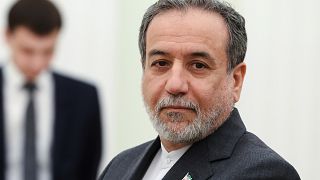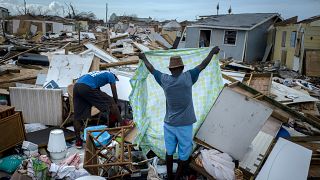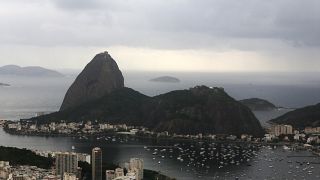Bahamas
Leaders of nine small island states appeared at the United Nations Maritime Court in Hamburg on Monday to seek protection of the world's oceans from catastrophic climate change, as rising sea levels threaten their very existence.
They are asking the International Tribunal for the Law of the Sea to determine if carbon dioxide emissions absorbed by the oceans can be considered pollution, and if so, what obligations countries have to protect the marine environment.
The island states said decades of diplomacy, pleading with the large emitters of greenhouse gases to reduce emissions, have not yielded results which is why they have taken this initiative.
"There is nowhere else for us to go. And so for us this is all about, as far as small island states are concerned, this is about our livelihood. But then you look at the bigger picture, and this is all about humanity," said Arnold Loughman, Attorney General of Vanuatu.
The Bahamas, Niue, Palau, St Kitts and Nevis, St Lucia, St Vincent and the Grenadines and Antigua-and-Barbuda are also part of this coalition.
As one of the world’s largest carbon sinks, the ocean absorbs 25 per cent of all CO2 emissions and captures 90 per cent of the excess heat generated by them. It also generates 50 per cent of the planet’s oxygen.
Excessive carbon pollution causes harmful chemical reactions such as acidification and coral bleaching, and jeopardises the ocean’s ability to absorb CO2 and safeguard life on Earth.
The low-lying island states are also at risk of becoming submerged by water by the end of the century.
"We are literally suffering from all the consequences. So, for example, we have droughts, we have had floods, we have seen more ferocious and frequent hurricanes, heatwaves, bushfires. We have even lost part of our coastline as a result of sea level rise," said Gaston Browne, Prime Minister of Antigua-and-Barbuda.
This is despite small island developing states being collectively responsible for less than one per cent of global carbon emissions.
At the heart of the case is the UN convention on the Law of the Sea that obliges countries to prevent pollution of the oceans.
While it defines pollution as the introduction by humans of "substances or energy into the marine environment" that harms marine life, it cite carbon emissions as a pollutant
The nine states said they had turned to the court for help in the belief that international law was an essential mechanism for correcting the injustice their people are suffering as a result of climate change.
"That should help to complement the climate diplomacy that has been taking place at the various COPs. So this is a complementary pathway to ensure that we get leaders globally to enhance their ambitions, to make sure that we reduce global warming," said Browne.
In addition to the island nations, countries including Germany, France, Saudi Arabia, and Australia will be speaking at the hearing which continues until 25 September.
The tribunal will then issue an advisory opinion which is not legally binding.










01:22
World will have to learn to live with heatwaves, UN says
02:22
Cameroonian marine conservationists trained as scientific divers
00:24
Greenland and Iceland saw record heat in May
01:34
EU commits €1 billion to protect oceans under a new pact
01:30
Macron sparks global push to protect oceans
01:00
Renewed calls to end plastic pollution on World Environment Day